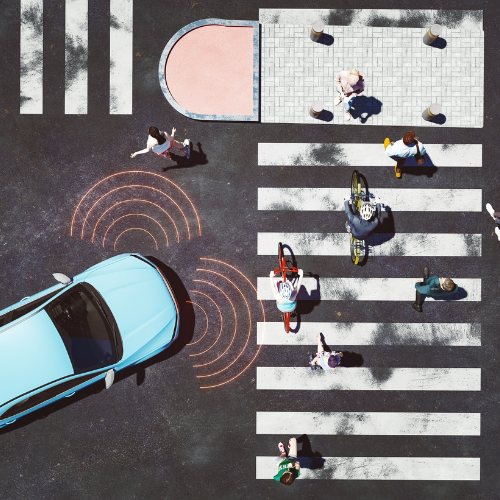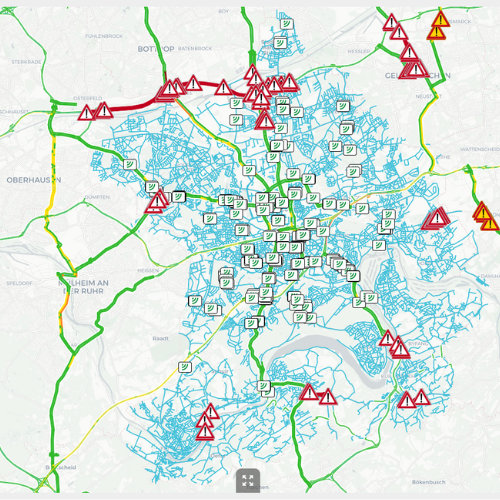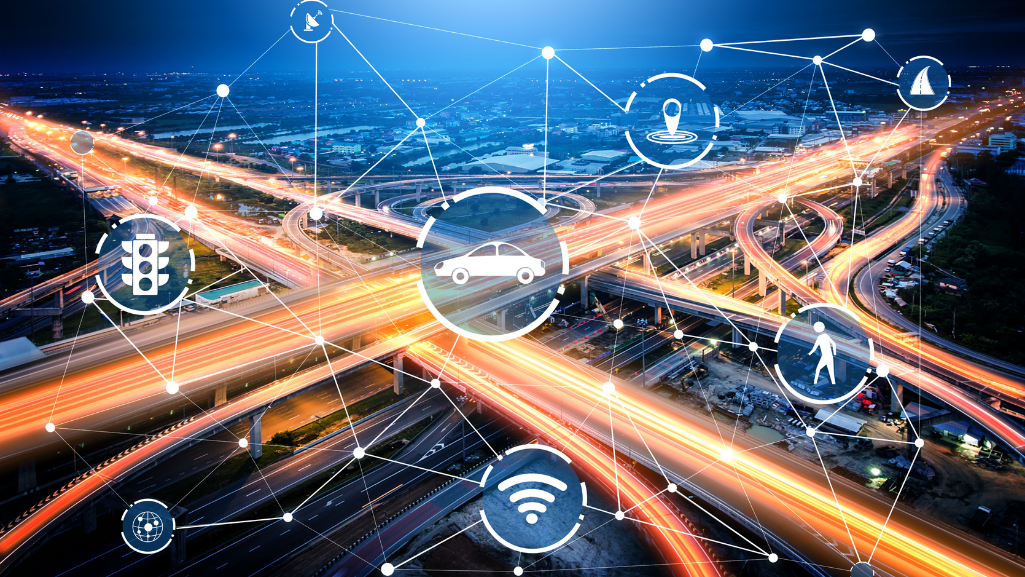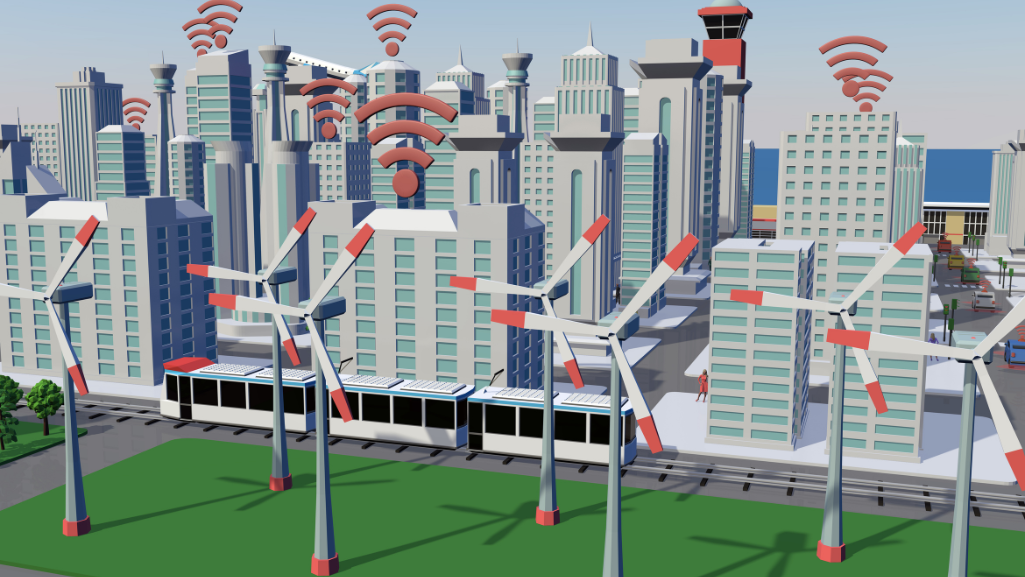How can you tell that you are in a smart city? One telltale sign might be smooth traffic operations. Smart cities leverage innovative technologies and data to address diverse urban development challenges and create livable urban environments.
This encompasses aspects like housing, energy supply, administration, and, of course, mobility. Enter smart city traffic management.
What is a smart traffic management system?
One of the key elements within smart city initiatives is an integrated smart traffic management system.
These systems use cutting-edge tech like AI, data analysis, and real-time communication to to make traffic in urban areas more efficient, sustainable and safer.
Smart traffic management systems gather and analyze data from various sources. They enable traffic managers to make informed decisions and optimize traffic flows. This reduces traffic congestion and air pollution and improve safety.
How do smart cities use traffic data?

The modern mobility sector is a data powerhouse. Millions use location-based apps. Cars are more and more connected. A vast network of sensors and computing devices monitor traffic flow and public transit.
Modern road sensors provide comprehensive data sets on traffic events, vehicle and pedestrian detection, near-accidents, red light violations, and congestion queues. Also, data from vehicle sensors (GPS, speed, acceleration, braking behavior) and mobile apps add to this valuable information pool.
Smart cities collect data and leverage this data to revolutionize their transportation systems. Traffic managers can make informed decisions, optimize traffic networks, reduce congestion, and enhance road safety.
Smart cities collect data and leverage this data to revolutionize their transportation systems. Traffic managers can make informed decisions, optimize traffic networks, reduce congestion, and enhance road safety.
Application areas of smart city traffic management
1. Real-time monitoring of traffic conditions
A network of sensors, cameras, and GPS devices provides live data on traffic flows, counts, travel times, and speeds. This constant stream enables real-time monitoring, allowing for prompt identification of congestion, accidents, or disruptions.
2. Incident Management
Advanced algorithms process real-time data to directly respond to traffic incidents. This may involve rerouting traffic, providing real-time information to motorists, and dispatching emergency crews.
3. Adaptive Traffic Signal Control
Unlike traditional fixed-timing systems, intelligent traffic management systems employs adaptive signal control algorithms. These adjust traffic light timings based on current congestion, optimizing traffic flow.
4. Predicting future traffic conditions:
By merging historical data with real-time information, smart traffic management systems can forecast future traffic situations. This enables proactive planning and implementation of measures to alleviate potential congestion before it arises.
5. Traveler Information
Commuters receive live traffic information like current conditions and predicted travel times via traffic websites, apps, and radio.
6. Data-Driven Decision-Making
Data analytics not only gives insights into peak hours and high-traffic areas. It also empowers traffic authorities to make informed strategic decisions leading to better traffic flow and reduced congestion.
Smart Traffic Management Software: The Engine at the Core
Software is at the heart of smart city traffic management. Cities such as Vienna, Rome and Taichung rely on the real-time traffic management solution PTV Optima. The software integrates data from various sources, analyzing real-time and historical data to generate precise live information for traffic control, route optimization, and improved road safety.
Artificial intelligence plays an increasingly important role, especially in real-time data analysis, forecasting models, and adaptive decision-making. Machine learning processes vast amounts of data to recognize patterns, trends, and incidents. AI-driven tools enable traffic managers to react swiftly to changing conditions.
PTV Optima leverages machine learning with dynamic traffic modeling. It continuously compares and validates real-time data, feeding it into dynamic traffic models. Traffic managers receive not only live information but also predictions on how traffic will develop, allowing for proactive management. The tool enables traffic forecasts up to 60 minutes in advance.

Another advantage is traffic simulations. These enable traffic managers to analyze different scenarios for dealing with traffic jams, road closures, and roadworks, identifying the best solutions. The software allows testing and evaluation of mitigation strategies in a virtual environment. By simulating parallel scenarios, the model can recommend actions to divert traffic away from congestion.
Smart city traffic management allows for better demand control and the right measures to be taken in response to planned (roadworks) and unplanned (accidents) events, ultimately creating a smoother ride for everyone.



